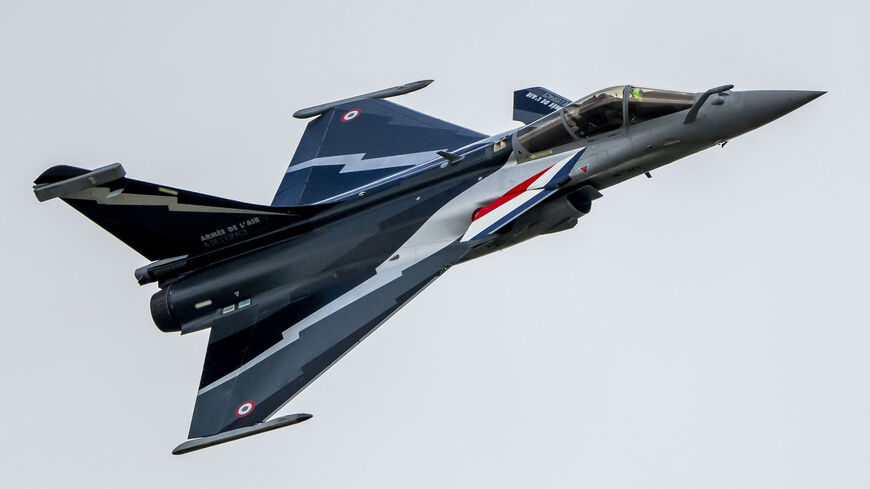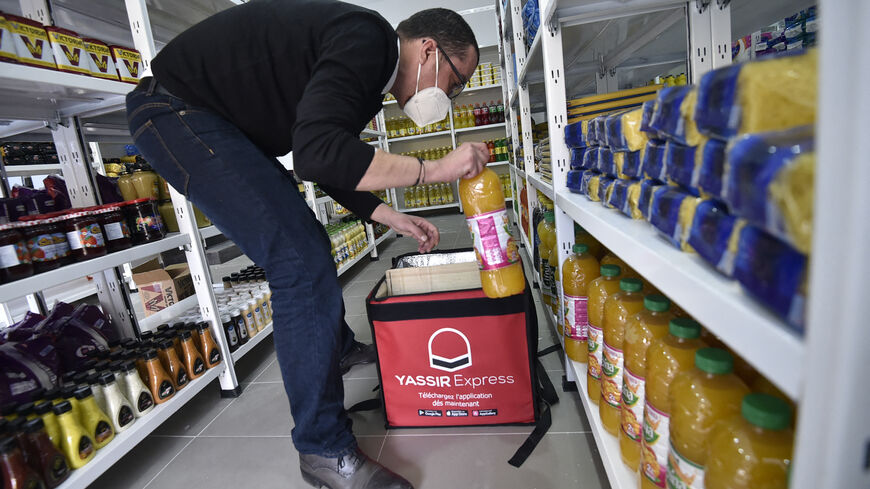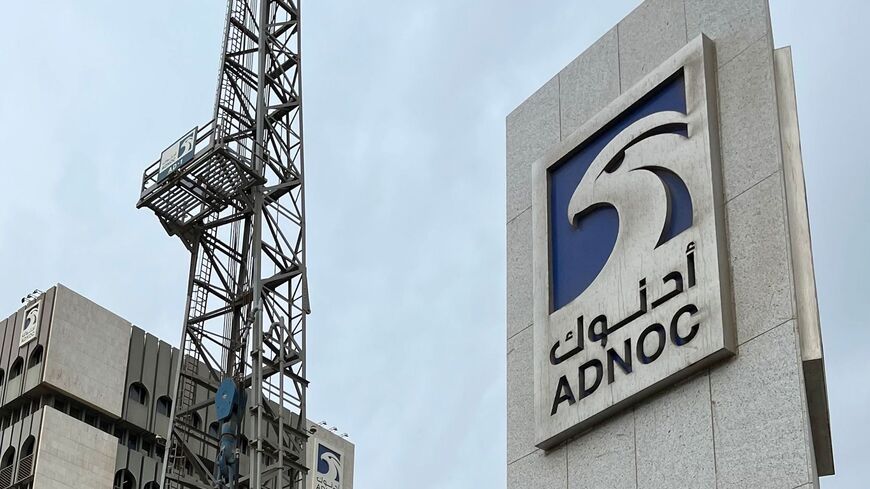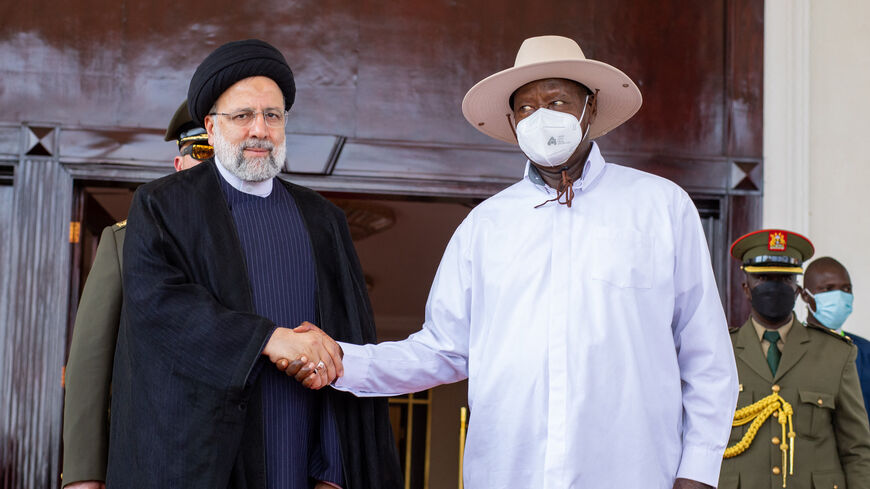Investors bank on Middle East super apps, from Algeria to the UAE
Al-Monitor Pro Members
Samuel Wendel
Senior Market Research Analyst, Al-Monitor
Feb. 13, 2023
Super apps — mobile platforms that blend together everything from ride-hailing to remittances — are starting to attract super-sized investments in the MENA region. Case in point: Egypt’s MNT-Halan, which offers numerous financial products alongside e-commerce options, announced $400 million in new funding in February 2023 at a $1 billion valuation, pushing it into rarified air in the Middle East’s tech sector. That comes after North Africa-focused super app Yassir raised $150 million in late 2022, among other developments. That includes ride-hailing giant Careem actively expanding its super app platform via acquisitions. The super app business model has grown quickly across emerging economies in recent years and could now proliferate in the MENA region as global and local investors line up.
- China’s WeChat, which has over 1 billion users, first popularized the super app concept after initially launching as a messaging app in 2011. Similar platforms are highly popular in Asia and Africa in part because they integrated multiple services early on, while most mobile services are delivered via separate apps in the West, according to Deloitte.
- Alongside developing a single payment option for multiple services, super apps look to amass and leverage data in order to integrate different products: for instance, these platforms can assess a loan application based on e-commerce transaction data or bill payment history.
- Currently, super apps are less successful outside emerging markets, partially because of tighter data governance and antitrust regulations, which Deloitte says could impact super app growth in the US, Europe and Australia. Still, over 50% of the global population will use multiple super apps daily by 2027, predicts US-based research and consulting firm Gartner.
- In the MENA region, this business model has potential to dominate digital services and help drive financial inclusion, according to a 2021 study by Economist Impact, with the prevalence of low-end mobile phones and high internet costs making super apps attractive.
- The number of mobile internet users in the MENA region exceeded 300 million in 2021, according to telecom industry group GSMA, while Statista forecasts around 357 million mobile internet users in the region by 2025.
- 70% of MENA consumers preferred digital payment methods in 2022, up from 40% in 2020, according to a regional survey by Checkout.com. 82% reported using a fintech app in 2022, while cash-on-delivery usage declined nearly 40% in the past 24 months.
- Careem, with over 50 million registered customers, leads MENA’s super app playing field. After becoming a ride-hailing giant and getting acquired by Uber, Careem debuted its super app in 2020 in Dubai. It has since consolidated over a dozen services, from grocery delivery to PCR testing.
- In 2022, Careem introduced a digital wallet for UAE customers that allows peer-to-peer transfers, which it launched with authorization of the UAE Central Bank. In 2022, Careem also acquired food delivery subscription platform MUNCH:ON, as well as the Dubai-based money transfer firm Denarii, both Dubai-based companies. That came as Bloomberg reported Careem was looking to potentially raise $500 million to bankroll expansion.
- Another UAE company developing a super app is Astra Tech. Although yet to launch its platform, Astra Tech reports having raised $500 million from investors — including Abu Dhabi-based AI firm G42 — and it has been busy absorbing services for what it dubs an “ultra platform.”
- That includes its January 2023 acquisition of popular voice-calling app Botim, which has 90 million registered users. Astra Tech also acquired on-demand personal and home services firm Rizek and the fintech company Payby in 2022.
- Meanwhile, Egypt is producing numerous super apps, headlined by MNT-Halan, which reports 1.3 million monthly active users. Created in 2018, it has roots in ride-hailing but now focuses on fintech and has multiple licenses from Egypt’s Financial Regulatory Authority.
- MNT-Halan’s sizable new funding — which includes over $200 million from Abu Dhabi private investment firm Chimera — comes after raising $120 million from global and regional growth investors in 2021. It also acquired B2B e-commerce platform Talabeyah in 2022.
- Elsewhere, Egyptian e-payments giant Fawry is developing a super app, while a collaboration between fintech company PaySky, Egypt Post and Visa has produced Yalla Super App. There’s also the financial super app Khazna, which raised $38 million in 2022.
- North Africa also has Yassir, an Algerian founded super app offering ride-hailing, food delivery, banking and more. Its November 2022 mega round was led by US venture fund BOND, bringing its total raised to roughly $200 million.
- Yassir counts over 8 million users and a presence in 45 cities across Algeria, Morocco and Tunisia, alongside recent expansions into France, Canada and Sub-Saharan Africa.
- Regulations are a factor to watch as super apps try scaling different services across multiple markets. Antitrust activity in the MENA region is also expected to continue rising in 2023, as several jurisdictions across the region have started amending competition laws, introducing new regimes and announcing enforcement efforts, according to law firm White & Case.
- Data governance looms larger too: Saudi Arabia and Oman are set to welcome new personal data protection laws in 2023, while the UAE’s federal data protection law arrived in 2022 and Bahrain issued new guidelines around its data law too.
- However, key regional governments are embracing fintech, including regulators eying open banking — a practice whereby a third party gains access to customer financial data to offer more advanced and innovative banking services. Supportive open banking policies could boost super apps.
Scenario 1: Super apps struggle to lift off
A fragmented regional regulatory environment and tightening data governance policies undercut super apps. Simultaneously, increasing competition (including from incumbent financial players) sees super apps burn through funding and lose focus on their core business as they sacrifice profitability to gain market share.
That said, while navigating new data laws may complicate efforts to leverage customer information, key super apps have successfully secured regulatory approvals from financial authorities so far. Meanwhile, the MENA region should have room to sustain multiple super apps and the contours of competition are still coming into focus.
Scenario 2: Super apps become monopolies and hurt MENA’s startup ecosystem
Super apps grow prolifically across many regional markets in coming years and attract significant investor attention. As they amass users and market power, these giant platforms crowd out startups across fintech, e-commerce and mobility in the MENA region.
Yet, super apps need significant market reach and the right mix of services to thrive, which should require ongoing acquisitions, investments and partnerships. That can create ongoing opportunities for entrepreneurs to build new businesses and deliver innovations within a wider super app ecosystem.
2023 sees more acquisitions, partnerships and investments around super apps as key players accelerate development in the MENA region. In the Gulf, Careem may be compelled to raise new funds to drive expansion as new challengers emerge. Saudi Arabia could also birth new super apps as investments into tech rise, while existing platforms with large user bases could also evolve into super apps, like online retailer Noon. But don’t expect one super app to rule them all, as the MENA region is too fragmented for one company to quickly dominate and amass rich data troves. Navigating different regulations and data privacy rules will slow down regional expansion, as fast-growing super apps don’t neatly fall into one category for regulators. The playing field is still coming into focus, but these platforms can help expand financial inclusion and extend the MENA region’s digital economy to more people in more places, potentially setting the stage for a new breed of local tech powerhouses to rise.
Samuel Wendel is a senior market research analyst with Al-Monitor covering economic, tech and business trends across the Middle East. He has previously served as a journalist with Forbes Middle East and Wamda, where he reported on key industry developments spanning a range of sectors in the region.
We're glad you're interested in this memo.
Memos are one of several features available only to PRO Expert members. Become a member to read the full memos and get access to all exclusive PRO content.

Already a Member? Sign in
The Middle East's Best Newsletters
Join over 50,000 readers who access our journalists dedicated newsletters, covering the top political, security, business and tech issues across the region each week.
Delivered straight to your inbox.
Free
What's included:
Free newsletters available:
- The Takeaway & Week in Review
- Middle East Minute (AM)
- Daily Briefing (PM)
- Business & Tech Briefing
- Security Briefing
- Gulf Briefing
- Israel Briefing
- Palestine Briefing
- Turkey Briefing
- Iraq Briefing
Premium Membership
Join the Middle East's most notable experts for premium memos, trend reports, live video Q&A, and intimate in-person events, each detailing exclusive insights on business and geopolitical trends shaping the region.
$25.00 / month
billed annually
$31.00 / month
billed monthly
What's included:
Memos - premium analytical writing: actionable insights on markets and geopolitics.
Live Video Q&A - Hear from our top journalists and regional experts.
Special Events - Intimate in-person events with business & political VIPs.
Trend Reports - Deep dive analysis on market updates.
We also offer team plans. Please send an email to pro.support@al-monitor.com and we'll onboard your team.
Already a Member? Sign in






